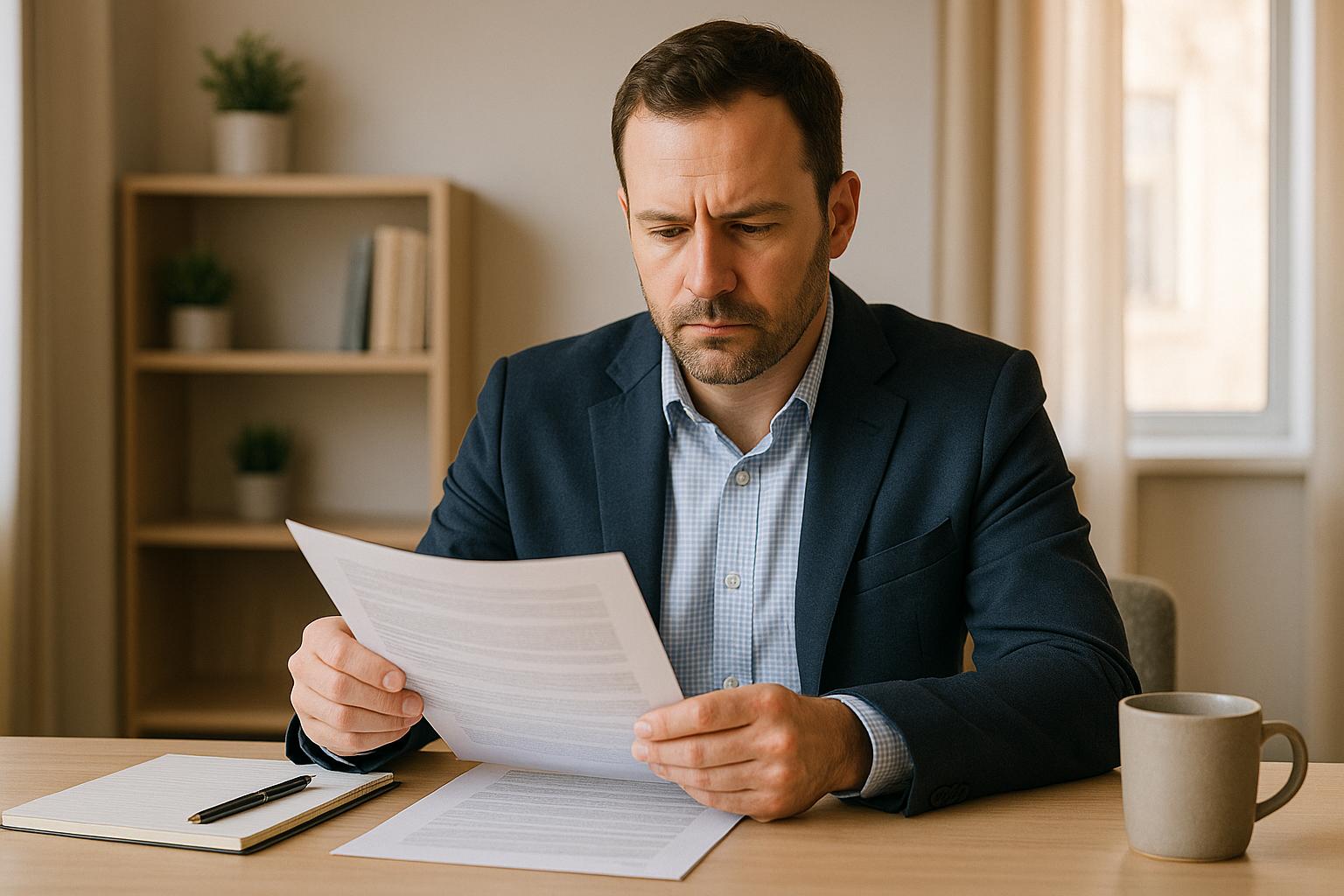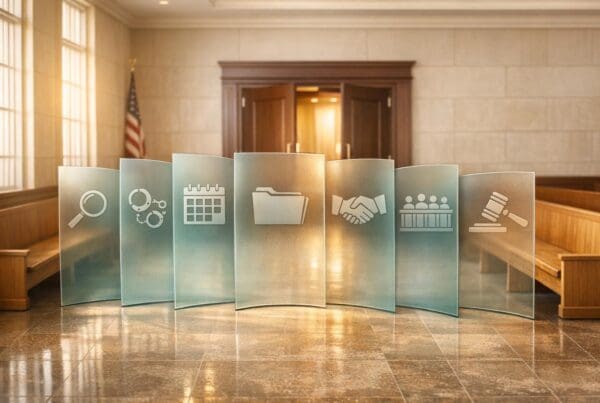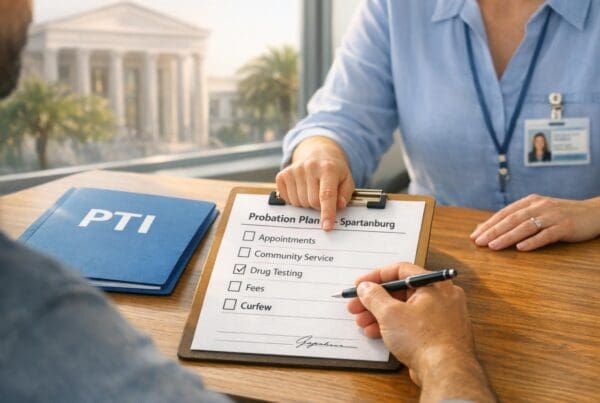Facing a DUI arrest in South Carolina can be overwhelming, but understanding the process can help you navigate it more effectively. Here’s a quick breakdown of what happens:
- Immediate Steps: After your arrest, you’ll undergo booking, a bond hearing, and possibly chemical tests (breathalyzer or blood tests). Refusing these tests can lead to automatic penalties.
- License Suspension: Your license may be confiscated, and you’ll receive a temporary permit. You can contest the suspension within 30 days or apply for a temporary license.
- Court Process: You’ll face criminal charges, with penalties depending on your BAC and prior offenses. This includes fines, possible jail time, and mandatory programs.
- Legal Representation: Hiring an experienced DUI attorney early is crucial. They can challenge evidence, protect your rights, and guide you through both administrative and criminal proceedings.
The consequences of a DUI arrest are serious, impacting your driving privileges, finances, and record. Acting quickly and securing legal help can make a significant difference in the outcome.
What Happens Right After Your DUI Arrest
A DUI arrest sets off a series of legal steps that can feel overwhelming. Understanding what happens during this process can help you navigate it with more clarity.
Traffic Stop and Field Sobriety Tests
A DUI traffic stop typically starts when an officer notices a traffic violation or driving behavior that suggests impairment. The officer will ask for your driver’s license, vehicle registration, and proof of insurance. During this interaction, they’ll also look for signs of impairment, such as the smell of alcohol, slurred speech, bloodshot eyes, unsteady movements, or difficulty handling documents.
If the officer suspects you’re impaired, they may ask you to perform field sobriety tests (FSTs). These tests often include the one-leg stand, walk-and-turn, and horizontal gaze nystagmus (HGN), where you follow an object with your eyes so the officer can observe involuntary eye movements. You have the right to refuse these tests, but keep in mind that your refusal could be used as evidence in court.
Breathalyzer and Chemical Tests
If the officer has enough reason to believe you’re impaired, they’ll proceed with chemical testing. In South Carolina, having a driver’s license means you’ve agreed to implied consent laws, which require you to submit to tests like a breathalyzer. After your arrest, you’ll be taken for a breath test, and the officer will explain your rights under these laws. The legal blood alcohol content (BAC) limit is 0.08% for drivers aged 21 and older.
Refusing a breathalyzer test leads to an automatic suspension of your driver’s license, and your refusal can also be presented as evidence in court. Once chemical testing is complete, you’ll be booked, moving you closer to your release and bond hearing.
Booking and Release Process
After your arrest, you’ll be taken to a local detention center for booking. This involves fingerprinting, taking your photograph, and recording personal details. Each step, from the sobriety tests to the booking process, plays a role in shaping your legal case.
Within 24 hours of your arrest, a bond hearing will determine whether you can be released before your court date. By law, South Carolina requires that you be released within a reasonable time – no more than four hours – after posting bond. During the hearing, the judge will consider factors like your risk of fleeing and whether you pose a danger to the community. You may be released on a personal recognizance bond, which doesn’t require payment but does require your promise to attend court. Alternatively, you may have to post a cash or surety bond.
For a first-offense DUI, the bond amount cannot exceed the maximum fine, including additional costs and assessments. Once released, you’ll need court permission to leave the state until your case is resolved.
Having a criminal defense attorney by your side at the bond hearing can make a big difference. They can advocate for your release and help ensure you understand and comply with all conditions, like attending court dates and adhering to travel restrictions.
License Suspension and Your Driving Rights
After a DUI arrest in South Carolina, your driving privileges can be affected by specific administrative actions. Below, we’ll break down how your license is handled, the options for temporary driving privileges, and the steps to contest a suspension.
License Confiscation and Suspension Notice
South Carolina’s implied consent law enforces automatic penalties if you refuse a breath test or register a BAC of 0.15% or higher during a DUI arrest. In these situations, the arresting officer will take your license and issue a Notice of Suspension.
Your license isn’t automatically suspended just because you were arrested for DUI. However, a refusal to take the test results in a six-month suspension, while a BAC of 0.15% or higher leads to a one-month suspension for a first offense. When your license is confiscated, the officer provides a temporary driving permit valid for 30 days from the date of your arrest. This gives you some breathing room to decide your next steps.
Options for a Temporary License
South Carolina offers temporary licenses that allow limited driving after a DUI arrest. Each type of license has specific conditions and restrictions.
- Temporary Alcohol License (TAL): This license lets you drive without restrictions after you request an administrative hearing and pay a $100 fee. It remains valid until the hearing date.
- Provisional License: Available after a DUI conviction, this license allows you to drive to essential places like work, school, grocery stores, church, or court-mandated programs. It costs $100.
- Route-Restricted License: Similar to the Provisional License, this option limits travel to specific locations such as work, school, or ADSAP meetings. It also costs $100 and is only issued once for DUI-related suspensions.
Changes coming into effect on May 19, 2024, will impact these options. Provisional licenses will no longer be available for first-offense DUIs with a BAC of 0.14% or less, and route-restricted licenses will no longer be issued for cases involving a BAC of 0.15% or higher.
To apply for any temporary license, you’ll need to visit the DMV with completed forms, proof of identity and insurance, and the required fees. Most temporary licenses also require enrollment in the Alcohol and Drug Safety Action Program (ADSAP) and an SR-22 insurance certificate.
How to Request a Hearing to Challenge Suspension
If you want to fight your license suspension, you must request an administrative hearing with the Office of Motor Vehicle Hearings (OMVH) within 30 days of your arrest. This deadline is strict – missing it forfeits your chance to contest the suspension.
The administrative hearing is separate from your criminal case. It focuses on whether the suspension was justified based on the circumstances of your arrest, not on your guilt or innocence.
To request a hearing, fill out the reverse side of your Notice of Suspension and send it via certified mail along with a $200 fee. Using certified mail ensures proof of delivery, which can protect you if there are disputes about your request.
Once you’ve submitted your hearing request, you can apply for the Temporary Alcohol License mentioned earlier. This TAL costs an additional $100 and allows you to drive until the hearing date.
During the hearing, the officer will review whether the arresting officer had probable cause to stop you, whether you were informed of your rights under the implied consent law, and whether you refused testing or registered a BAC of 0.15% or higher. The decision made at this hearing only affects your driving privileges, not the outcome of your criminal case.
Taking swift action to secure a temporary license can help you maintain your driving rights while your case moves forward.
Court Process and Criminal Charges
If you’re arrested for a DUI in South Carolina, you’re stepping into two separate legal pathways. One deals with administrative issues, like your driver’s license suspension, while the other handles the criminal charges tied to the DUI itself.
DUI Criminal Charges Explained
In South Carolina, DUI (Driving Under the Influence) and DUAC (Driving with an Unlawful Alcohol Concentration) are treated as distinct but equivalent charges. Both carry the same penalties, but the evidence required differs slightly. A DUI charge hinges on proving you were significantly impaired, while a DUAC charge only requires proof that your blood alcohol concentration (BAC) was 0.08% or higher. Prosecutors often pursue both charges to strengthen their case.
It’s important to note that these criminal proceedings are entirely separate from any administrative actions regarding your license. A DUI charge typically remains a misdemeanor unless it involves great bodily injury or death, which elevates it to a felony. South Carolina also uses a ten-year "lookback" period for considering prior DUI convictions. Once charged, the court establishes key dates that will guide the rest of your case.
Court Dates and What to Expect
Your first court appearance, known as an arraignment, marks the official start of your criminal case. At this stage, the judge will read the charges against you and ask for your plea – typically, you would enter a "not guilty" plea. Evidence is not presented at this point. The court will then schedule additional hearings and pre-trial conferences.
In some cases, the arraignment may also include a bond hearing. During this hearing, the judge evaluates factors like the severity of your charges, your criminal history, and your likelihood of appearing in court to determine release conditions.
Some courts may hold a pre-case meeting to discuss potential plea deals or dismissals. While a DUI trial could be scheduled within a year of your arrest, the overall process often stretches out over several months. You’ll also need to decide whether you want a bench trial (heard by a judge) or a jury trial. If you opt for a jury trial, make sure to file the necessary paperwork before your first court date. Missing any scheduled court appearances can result in a bench warrant for your arrest and additional charges.
Possible Criminal Penalties
The penalties for a DUI conviction in South Carolina depend on your BAC at the time of the offense and any prior convictions. A conviction also requires mandatory enrollment in the Alcohol and Drug Safety Action Program (ADSAP). Below is a breakdown of the fine ranges for various offenses as outlined by state guidelines:
| Offense | Fine Range |
|---|---|
| First Offense | $400 – $1,000 |
| Second Offense | $2,100 – $6,500 |
| Third Offense | $3,800 – $10,000 |
| Felony DUI | $5,100 – $25,100 |
Repeat offenders face stricter consequences, including longer jail time, higher fines, extended license suspensions, and the installation of an ignition interlock device. Additionally, a DUI conviction in South Carolina stays on your record permanently and cannot be expunged.
sbb-itb-ce0cbb0
Getting a Lawyer and Building Your Defense
Dealing with DUI charges in South Carolina means navigating both administrative and criminal proceedings, which can have long-lasting effects on your life. Because of this, securing the right legal representation is essential.
Hiring a DUI Attorney
The first step in defending against a DUI charge is hiring an attorney as soon as possible. An experienced DUI lawyer can act quickly to gather evidence, identify any violations of your rights, and explore legal strategies that might not be obvious to someone unfamiliar with South Carolina’s DUI laws.
"The importance of hiring a DUI lawyer in South Carolina cannot be overstated… having an experienced DUI lawyer by your side is essential to safeguarding your future." – duigreenville.com
When choosing an attorney, look for someone with a strong track record in DUI cases, a deep understanding of South Carolina law, and experience handling both administrative and criminal aspects of DUI charges. During your initial consultation, pay attention to how well they explain legal concepts, ask about their experience with cases similar to yours, and find out what resources they can bring to your defense, such as expert witnesses or investigators.
Understanding the cost is also important. DUI attorney fees in South Carolina typically range from $1,000 to $10,000. Many lawyers charge flat fees between $2,000 and $5,000, while others may bill hourly rates from $200 to $500. While cost is a factor, the goal should be finding the best representation for your case, not necessarily the cheapest option.
Once you’ve hired an attorney, they will help you understand the charges against you and develop a defense strategy tailored to your situation. They can also assist with license suspension issues, such as pursuing temporary licenses or contesting the suspension in administrative hearings.
Common DUI Defense Options
A good attorney will explore various defense strategies to challenge the evidence presented against you.
One frequent approach is questioning the legality of the traffic stop. Your lawyer will investigate whether the officer had valid probable cause to pull you over. If the stop was not justified, any evidence gathered – like breathalyzer results, field sobriety test outcomes, or statements you made – might be ruled inadmissible in court.
Field sobriety test results can also be challenged. Issues such as unclear instructions, poor training, or external factors like bad weather or uneven pavement can affect test performance. Additionally, medical conditions, fatigue, or certain medications might explain why someone struggled with these tests, even if they were sober.
Another common defense involves disputing blood alcohol concentration (BAC) test results. Breathalyzers and blood tests aren’t foolproof, and errors can occur due to equipment malfunctions, improper calibration, or biological factors like acid reflux, diabetes, or medications. Maintenance records and calibration logs for testing devices often play a critical role in these challenges.
Your attorney may also present alternative explanations for symptoms that officers interpret as signs of impairment. For instance, slurred speech, poor balance, or bloodshot eyes could result from allergies, fatigue, or prescribed medications rather than alcohol or drug use.
A skilled DUI lawyer will carefully examine every aspect of your case, from the initial traffic stop to the booking process, to identify procedural errors or rights violations. By doing so, they can build a defense that systematically challenges the prosecution’s evidence and gives you the best chance at a favorable outcome.
Possible Outcomes and Long-Term Effects
A DUI conviction in South Carolina can have a ripple effect on your life, especially when it comes to your finances and driving privileges. The immediate penalties and the lasting consequences are deeply intertwined, reflecting the dual nature of a DUI’s criminal and administrative impact.
Jail Time, Fines, and Other Costs
Getting convicted of DUI in South Carolina is an expensive ordeal. The total costs can easily exceed $10,000, not including the higher insurance premiums you’ll face for years afterward.
On top of the fines outlined in the criminal penalties, there are several additional expenses to consider:
- Ignition interlock devices: Installation alone can cost about $1,000, with monthly monitoring fees of around $130.
- DUI victim impact panels: Participation costs up to $75, with the possibility of annual increases tied to inflation.
- Extra penalties for collisions or other violations: Judges may tack on fines of up to $1,000 or extend jail time by as much as 180 days if your DUI involved aggravating circumstances.
These costs highlight the financial strain a DUI conviction can impose, making it critical to understand the full scope of penalties.
Administrative vs. Criminal Proceedings
In South Carolina, a DUI typically leads to two separate legal processes: the criminal case and the administrative case.
- Criminal Case: This is handled in state court, where the prosecution must prove guilt beyond a reasonable doubt. The outcome can include fines, jail time, and a permanent criminal record.
- Administrative Case: Managed by the South Carolina Department of Motor Vehicles or the Office of Motor Vehicle Hearings, this process focuses on your driving privileges. The standard of proof here is lower, and penalties may include license suspension, mandatory ignition interlock installation, and enrollment in alcohol intervention programs.
These two proceedings are independent, meaning the result of one doesn’t automatically determine the outcome of the other. For instance, you could be convicted in the criminal case but successfully challenge administrative penalties. It’s worth noting that about 70% of DUI arrests involve drivers who either refuse testing or record a breath alcohol level of 0.15 or higher, triggering automatic administrative sanctions.
How a DUI Shapes Your Future
The consequences of a DUI don’t end with the court’s decision. Financial and personal challenges can linger for years. For example, you may need to secure SR-22 insurance, which is far more expensive than standard coverage, and continue paying for ignition interlock devices and monitoring programs.
These long-term challenges underscore the importance of having a strong defense strategy. The choices you make during your case can significantly impact your future, so it’s crucial to approach every step with care and work with experienced legal counsel. Understanding these potential outcomes can help you make informed decisions as you navigate the legal process.
Conclusion: Your Next Steps After a DUI Arrest
After a DUI arrest, it’s vital to take immediate action and communicate carefully. Start by requesting an administrative hearing within 30 days to challenge the suspension of your license.
Your first move should be hiring a skilled DUI attorney. Having the right legal representation early on is essential for protecting your rights during bond hearings, administrative reviews, and criminal court proceedings. Once you’ve secured an attorney, be cautious about what you say – only discuss details of your case with your lawyer. Even offhand comments can be used against you in court.
Take the time to document everything you can recall about the traffic stop and arrest. Write down details like the officer’s behavior, the reason for the stop, and any tests performed. This information can be a key part of your defense, helping your legal team examine issues like the validity of the stop or the reliability of breathalyzer results.
South Carolina’s DUI laws are among the strictest in the country, making experienced legal guidance crucial. A knowledgeable attorney can help you navigate the legal process, understand the potential outcomes, and work to reduce penalties that could impact your future.
FAQs
What happens if I refuse a breathalyzer test during a DUI arrest in South Carolina?
Refusing a breathalyzer test during a DUI arrest in South Carolina comes with serious repercussions. Thanks to the state’s implied consent laws, saying no to the test triggers an automatic six-month driver’s license suspension, even for a first offense. If it’s not your first time, the suspension period can grow longer with each refusal.
Beyond losing your license, the refusal itself can be used as evidence in court, which might hurt your defense. If you’re in this position, reaching out to a skilled attorney is key. They can help you understand your rights and figure out the best way to move forward with your case.
Why is it important to hire a DUI attorney as soon as possible after an arrest?
Hiring a DUI attorney as soon as possible can greatly influence the outcome of your case. From the start, an experienced attorney will work to protect your rights, help you navigate the legal process, and ensure that important deadlines – like challenging a license suspension – are met.
A knowledgeable lawyer will carefully review the evidence, pinpoint flaws in the prosecution’s case, and craft a defense strategy tailored to your situation. This could result in reduced penalties, lower fines, or even the dismissal of charges in some situations. Taking action early gives you the best opportunity to resolve your case with minimal disruption to your life.
What should I do right after a DUI arrest to protect my rights and keep my license?
After being arrested for a DUI in South Carolina, staying calm and composed is crucial. While you should remain respectful, it’s equally important to exercise your right to stay silent. Avoid saying anything that might later be used against you. The next step? Reach out to an attorney immediately to explore your legal options and start preparing a defense.
A DUI arrest often comes with an automatic license suspension. However, you have the right to challenge this through an administrative hearing. Be aware that you typically need to file this request within 30 days, so time is of the essence. Acting quickly can help you protect your driving privileges and ensure your rights are safeguarded as the legal process unfolds.





